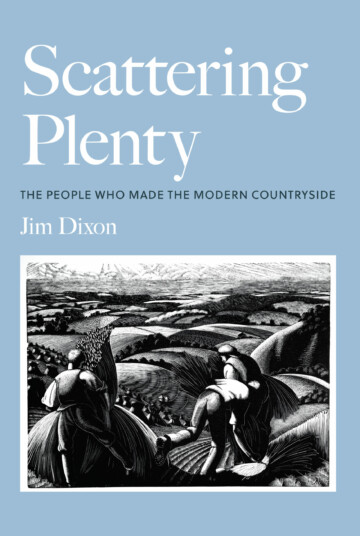
History & True Crime
How To Stage a Coup by Rory Cormac published today in paperback by Atlantic
06/04/2023

Jim Dixon has worked in conservation and land management for 40 years, at the RSPB, English Nature, Defra and as chief executive of the Peak District National Park Authority.
His very first job was as a countryside ranger on the Surrey heathlands. Whilst studying for a degree at Cardiff University, Jim began an interest in the ecology of farmland and the politics of the land with two short research jobs at two of Britain’s leading agricultural research stations, including the largest and oldest – Rothamsted. After graduating he spent ten years in the field working around the country on research, surveying and short term contracts with conservation bodies, farmers and policy makers.
He spent 11 years working at the RSPB HQ influencing early Environmentally Sensitive Areas and legislation to protect hedgerows, ancient woodland and outlawing stubble burning. He became an expert on the policies and procedures of the European Community and its Agriculture Directorate, and the corridors of power in Whitehall and Westminster where he worked closely with Ministers and senior officials. He then moved into a more official world, starting first in the statutory conservation agencies and then moving to work in MAFF and in Defra at its inception in 2001. From 2003-2014 he led the Peak District National Park Authority as CEO, including for four years chairing the UK network of national parks.
In 2014 he left the Peak District to take up a portfolio career of some business interests, as a Board Member of the National Lottery Heritage Fund, in the water industry, as a member of a Defra appeals panel and a judge of the Rural Business Awards. Jim also began writing professionally, including as a regular contributor to The Times Nature Notebook. In 2018, Jim joined the Glover Review of Protected Landscapes panel and in 2021 the Board of the National Association of Areas of Outstanding Natural Beauty. He has a fascination for antiquarian books, specialising in early fishing and countryside books, natural history and early travel and county histories and he now runs a small bookshop in Derbyshire’s Derwent Valley World Heritage Site. Jim has an Honorary Doctorate from the University of Derby.
Jim Dixon

At the outset of the twentieth century, the management of the British countryside was the preserve of powerful aristocratic estates, the ground worked by labourers toiling in time-honoured tradition.
Through wartime, post-war reconstruction and four decades embroiled in European countryside policies, Scattering Plenty tells of the birth of modern farming. It follows the stories of key figures driving change; as the face of the countryside evolves, it charts their fight for nature and natural beauty, and traces the gradual control that the state and democratic agents had on the land.
Their stories evoke the landscape of Britain, and take the reader inside the corridors of power in Whitehall and Brussels, where farmers and environmentalists jostled for influence. Who were the people scattering plenty across our land, and who made the modern countryside?
In Scattering Plenty, you’ll gain a deeper appreciation for the profound legacy of agriculture in shaping Britain’s past, present and future, as Jim Dixon delves into the lives of those who shaped the modern countryside and made space for the deeply rooted bucolic haven that millions enjoy today.